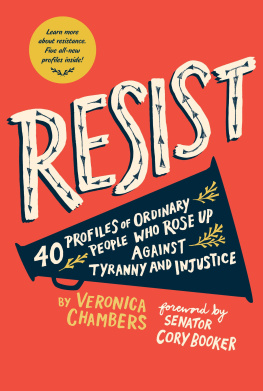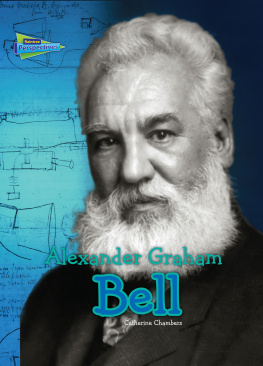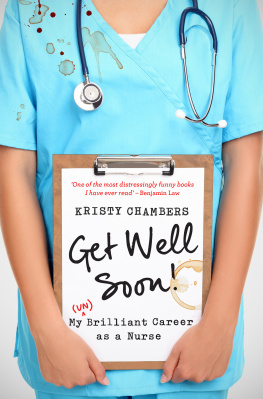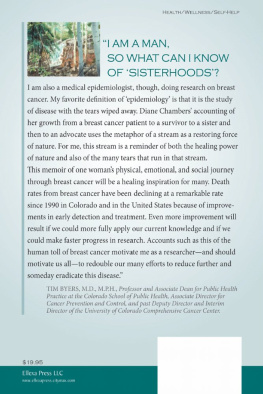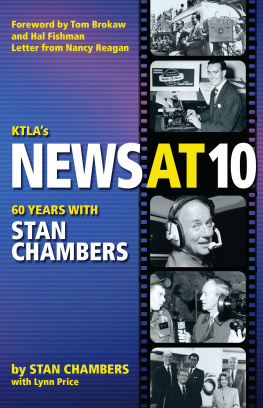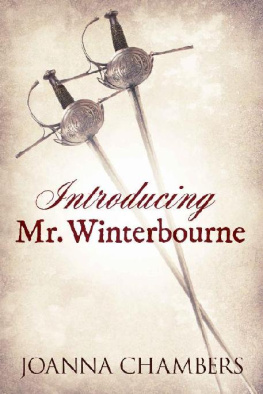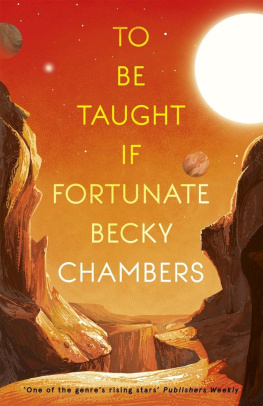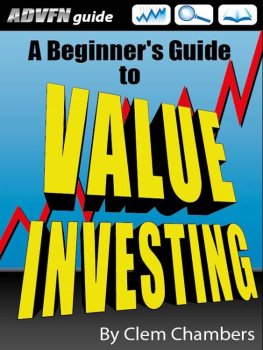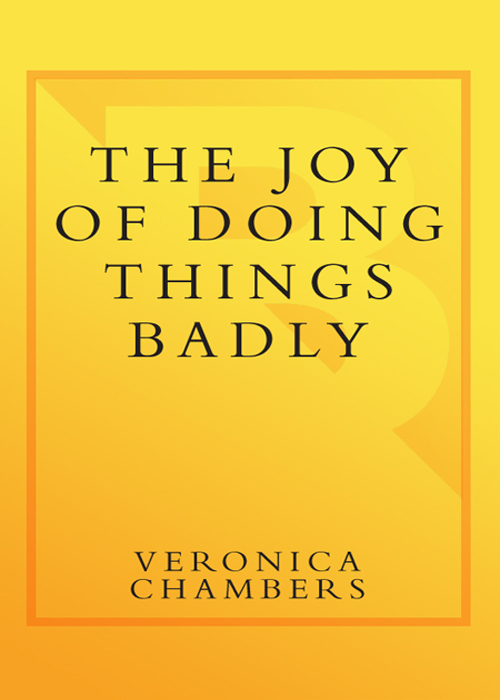
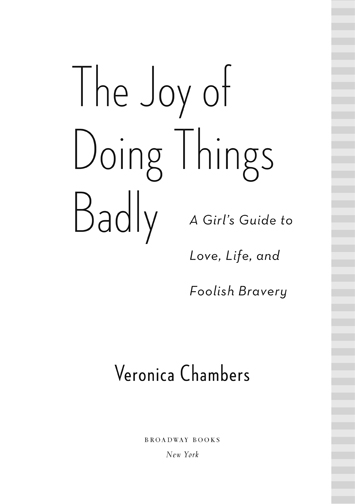
Contents
PART I
Gut Instincts
3 A Word or Two or Three about Rejection
and the Importance of Fighting for Your Joy
PART II
Knocked Off Balance
A Girls Guide to Staying on Her Feet
PART III
Two for the Road
For Jason
Whose Laughter Is Joy
Acknowledgments
Thank you, first and foremost, to Janet Hill, editor extraordinaire and all around swell gal. Thanks as well to her assistant, Tracy Jacobs. Dawn Raffel, who assigned me the original Joy essayje vous remercie. Jen De La Fuente along with Jerry and Mary Clampet read early drafts, and Jason read every draft. My nieces and nephews fill me with unending joy. My brother, Malcolm X Chambers, is good for jokes, board games, and sweet voice-mail messages from my nephew wishing me good night. Grazie to my manager, Angela Kyle, who consistently finds me work that I can do with joy. My aunt, Diana Richards, is a joy beacon.
A big, joyful thanks to Sujean Rim for her amazing illustrations; I feel lucky to have gotten to know her.
A big, swervilicious shout-out to the lovely Kris Hackel for being my partner in crime at Yoga Booty Ballet and Bhangra Bollywood dance class. Fellowships enable me to keep reaching toward the writing that I want to do. I can count on a wonderful posse of mentors and friends for recommendations: I am especially thankful to John Leland, Carol Rigolot, Chang-Rae Lee, David Gates, and Bernie Rodgers, who have given me more than I could ever express.
I am grateful for new friends: the BoysDario and Misja; the GourmandsAndrew and Diana; and for old friendsespecially Louise Hillman, Andrea Polans, and Caroline Kim. One of my big joys is the time Ive spent in Japan: domo to Mina, Kazuko, Ritsuka, and DJ Naomi. I would like to thank Haruki, Jun, and Kazu, but Wakkaterutemo! Rancho La Puerta is a haven, as is One and Only Palmilla and the wonderful Wheatleigh Hotel. Vivianne Njoku does a bang-up job editing the Joy of Doing Things Badly newsletter. Send her an e-mail at .
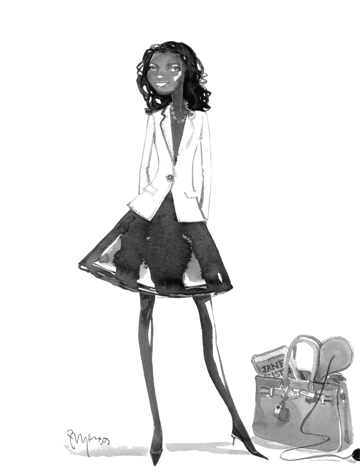
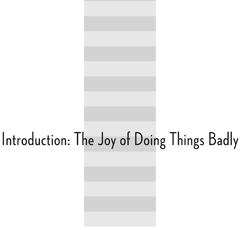
L AST SUMMER, MY HUSBAND, JASON, AND I WENT TO see my friends daughter perform in her school play. The production was called Thirteen Dancing Princesses. We were early, so we gathered with my friend and her family in the courtyard of the school. Jason asked what the play was about. Gretchen told him, There are thirteen teenage girls in it. Basically, there is a lot of crying and costume changes. Jason replied, Sounds a lot like our house. Which made everyone laugh but also has the virtue of being the truth.
That said, if I didnt have a wealth of ugly habits, shortcomings, and failures, I wouldnt be so well qualified to write a book called The Joy of Doing Things Badly. Truly I say unto you, Id have to destroy a rain forest to commit to paper my multiple, albeit pedestrian, flaws. At times, I have thought that it is a mighty cruel joke that God could bestow on me such a yearning for perfectionthe loud and resounding voice within that Sue Bender calls the judgealongside so little ability to reach my myriad and lofty goals. When I was a child, I thought Humpty Dumpty was just a story, like Cinderella or The Three Little Bears. I did not know that it was a parable of fear and failure and loss. What this book is about, at the very heart of it, is how, time after time, with no help from all the kings horses and all the kings men, you can put yourself back together again.
Throughout my life, my willingness to fall flat on my face has been my most marked characteristic. Never having had money, I have always been willing to spend the one thing that I have in hefty supply: time. In the ninth grade, I learned that one boarding school scholarship would be awarded to an underprivileged student at my school. I spent months on the application, dreaming myself into the school uniform and onto the schools campus. In the end, I didnt get in.
In tenth grade, a guidance counselor encouraged me to apply to be the schools nominee for a year-long exchange program with a high school in Germany. I got the school nomination; but again, I didnt get the scholarship. By then, however, I had a taste for applications, and applying for things became the one thing that I was actually good at. I won a one-week scholarship to a girls leadership program at Chestnut Hill College in Pennsylvania. I won a two-week scholarship to a teen journalism program in New Jersey. At sixteen, I was accepted to Simons Rock College, a college for kids who wanted to go to college early. And when I was eighteen, I won the thing that would forever shape my life: an internship at a magazine called Sassy.
The thing about that particular internship is that it came fresh on the heels of what felt like another failure. A friend of mine had interned at YM magazine. She encouraged me to apply to Seventeen magazine, the fabled land of Sylvia Plath and Brooke Shields and Phoebe Cates. My friend Susan encouraged me to apply for an internship at the magazine as well. I was promptly turned down. But I refused to be discouraged. I got out a copy of the Manhattan Yellow Pages and I called every publication in the magazine section starting with A. I did not know that Hello, do you have any internships? was not the way to get ahead in the publishing business. For more than four hours, I was hung up on, transferred, and then hung up on again; I was told no in almost every conceivable fashion. Then I got to S and called up a magazine called Sassy, which just happened to be a new magazine for teenage girls. I was transferred to the managing editor, who very kindly invited me to send her a letter and my rsum and then invited me in for a meeting.
My first failure helped me: An internship at Sassy, led to an internship at Seventeen, which led to internships at Essence and Life. By the time I was twenty-one, I had an assortment of short clippings with my very own byline, and I began to believe that I was really and truly a writer. Ill never forget being invited to a fancy cocktail party by a powerful editor at a magazine where I worked. At this party, I was buttonholed by an older man, a surgeon of some renown in his field who had published some short stories to great acclaim. He asked me what I wanted to do, now that I had graduated and was beginning my literary career. I told him that I wanted to write a book. His laugh was loud and hearty. Of course, you do, he said, and it seemed to me that of course had a dozen syllables in his mouth, each one more mocking than the last. But you wont write anything of importance until youre thirty. I asked him what I was supposed to do in the nine years between twenty-one and thirty. He shrugged. This in itself turned out to be a very powerful lesson: There is no shortage of people who will tell you what you cant do, but these same people dont always have a lot of encouraging advice about what you should be doing. Its as if filling you with trepidation is their sole purpose in life.
A year later, when I was twenty-two, I was invited by the filmmaker John Singleton to write a making of movie book for his second film,
Next page

